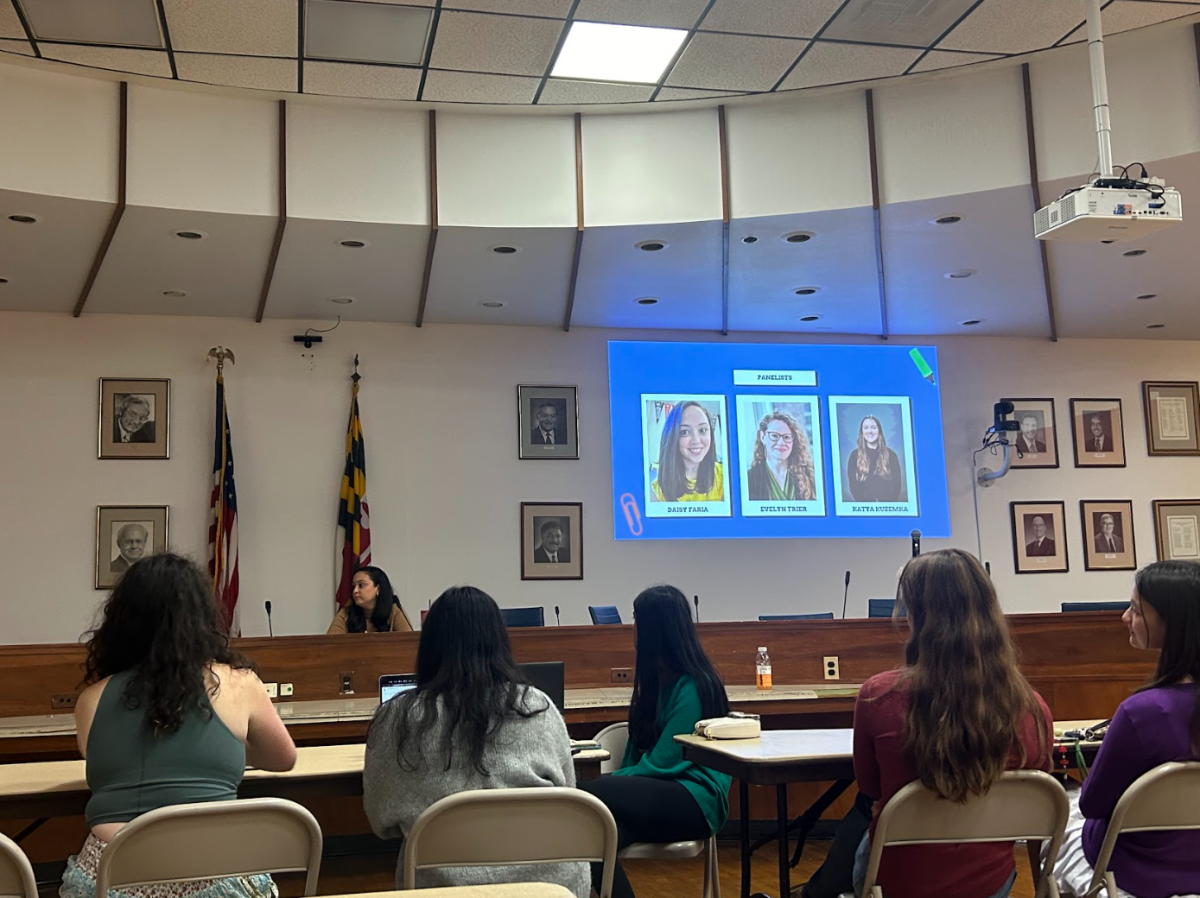
Chaikin presented a slideshow with videos, statistics and warnings about the dangers of cyber bullying, sexting, misuse of e-mail, telephone and online postings and pictures. He began the assembly by telling the students that he planned to treat them as adults.
“The goal [of the presentation] is to educate students and parents about what is out there, how not to be vulnerable and to explain the law,” Chaikin said.
He furthered that teen issues no longer just include the “big three” problems of drunk driving, drugs and sex to include cyber bullying and crime.
“We want to explain to people that there are bad people on the internet,” he said. “This is a way of being proactive rather than reactive. We are giving people the tools and abilities to prevent things from happening.”
He spoke of an incident in which a 26-year old man who was HIV positive met a 17-year old girl online and they soon began a consensual sexual relationship. Upon the police’s discovery of the situation, the man was arrested and charged with 36 months in jail.
Chaikin finished his story by asking the audience, “Is there a chance he could go back on the internet and look for you?”
By using specific examples, Chaikin encouraged students to make sure that they don’t participate in questionable online activity and prevent friends from doing the same. He said that students have a common misconception that privacy settings on social networking sites like MySpace and Facebook create a bubble of safety.
“All of your privacy settings are not private,” Chaikin said. “There is no privacy on the Internet. That’s a fallacy.”
When websites change part of their system, privacy settings reset back to default and information that students thought was private becomes available to everyone on the Internet.
He also pointed out that anyone can be found on the Internet even when people only post a small piece of information. Profile pictures and other easily accessible information are often enough for any potential predator to find someone.
“In 20 minutes a high school student can find someone online without using any personal information,” he said.
He also warned students that one promiscuous profile picture can destroy a students’s chance of getting into their top choice schools because colleges check social networking sites during the application process.
“Everything you post online is permanent,” he said. “Your internet identity stays with you forever.”








Shailendra • Feb 12, 2010 at 6:01 am
Very useful insight related to cyber safety. Provided me seeds to use them to educate parents, students and teachers here in India.
Good one
well done • Dec 28, 2009 at 8:37 pm